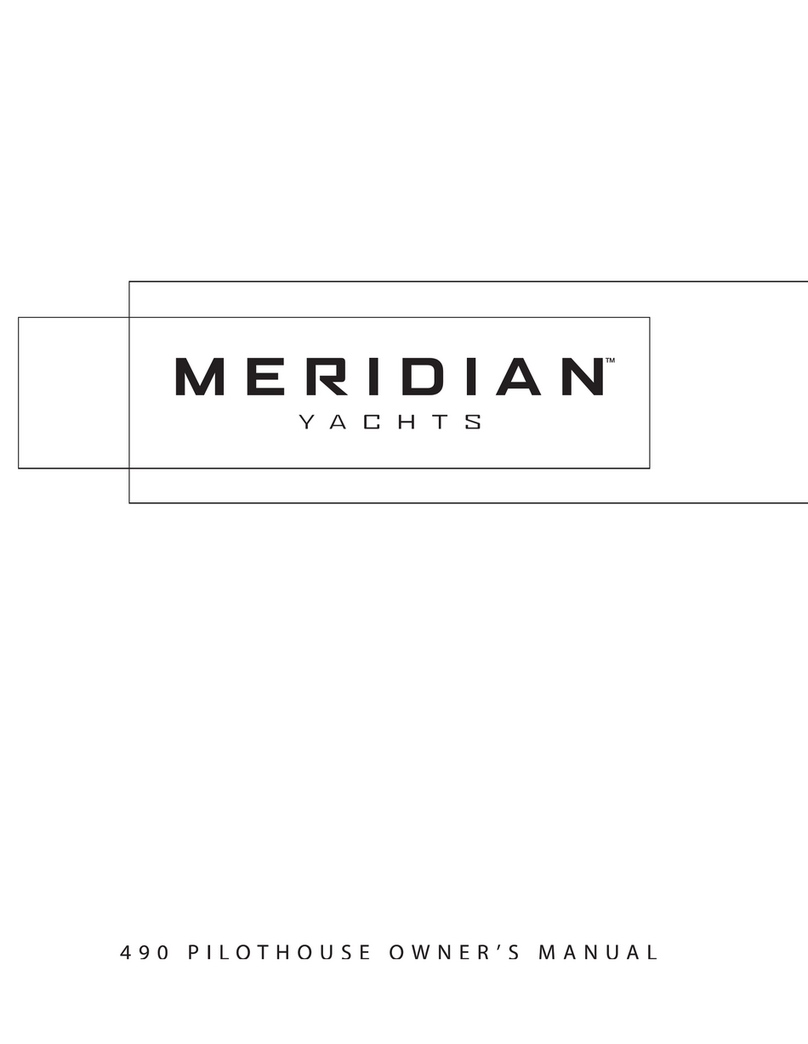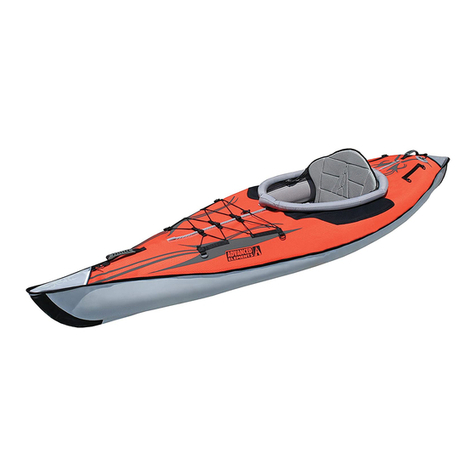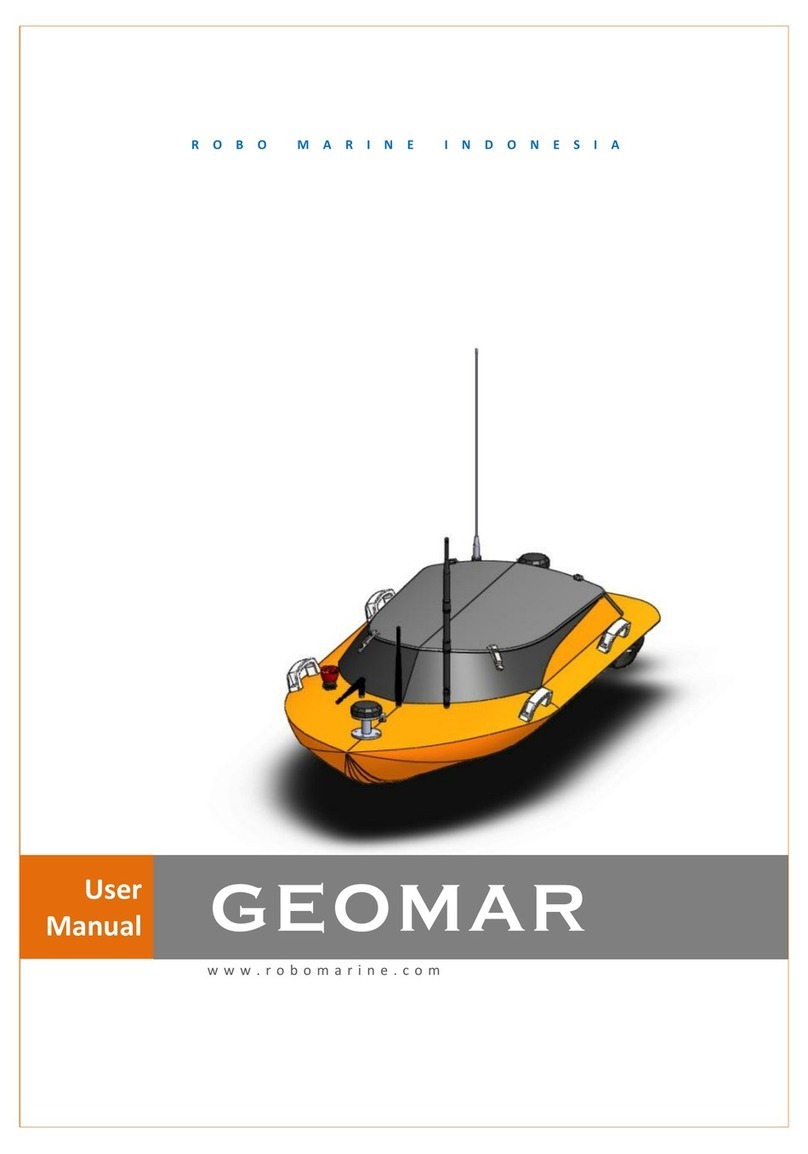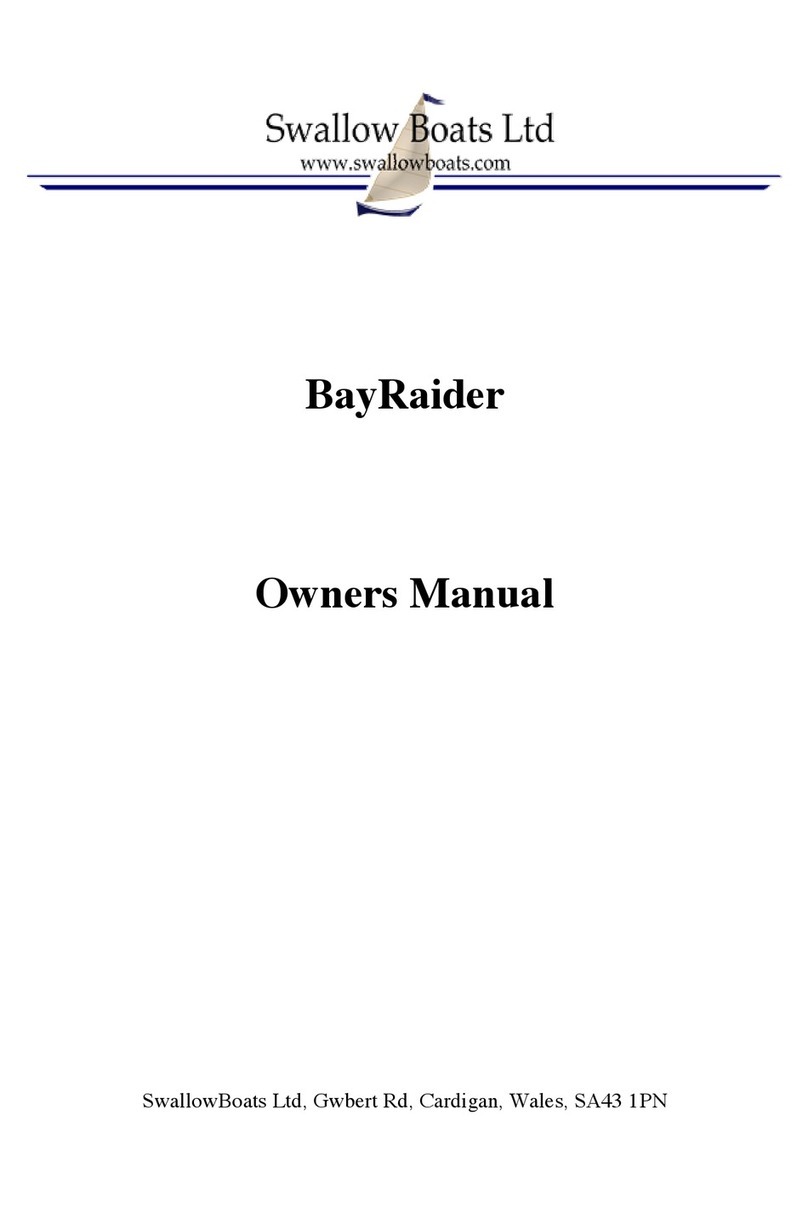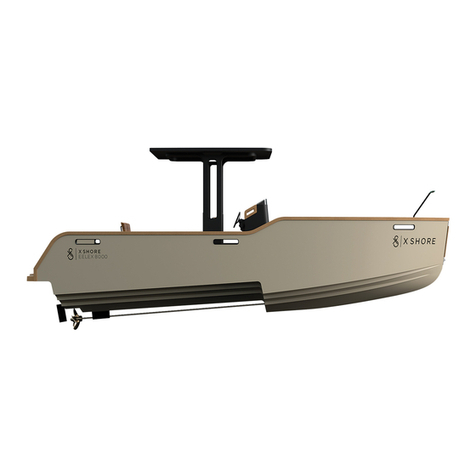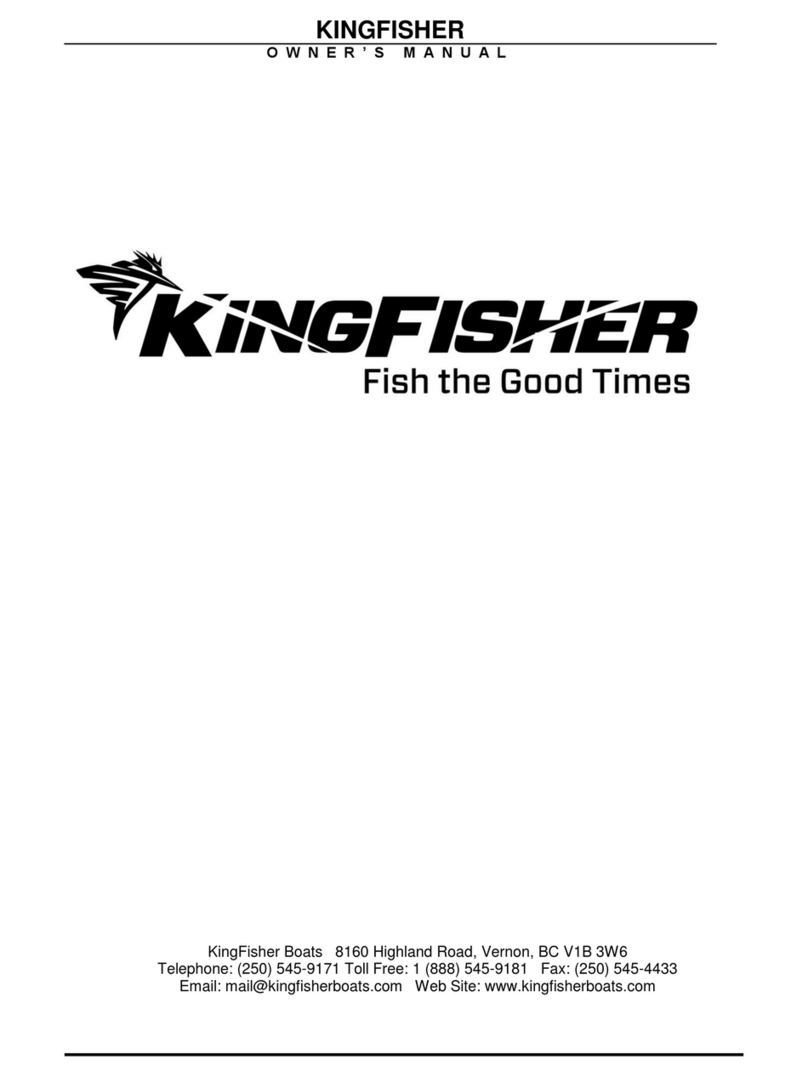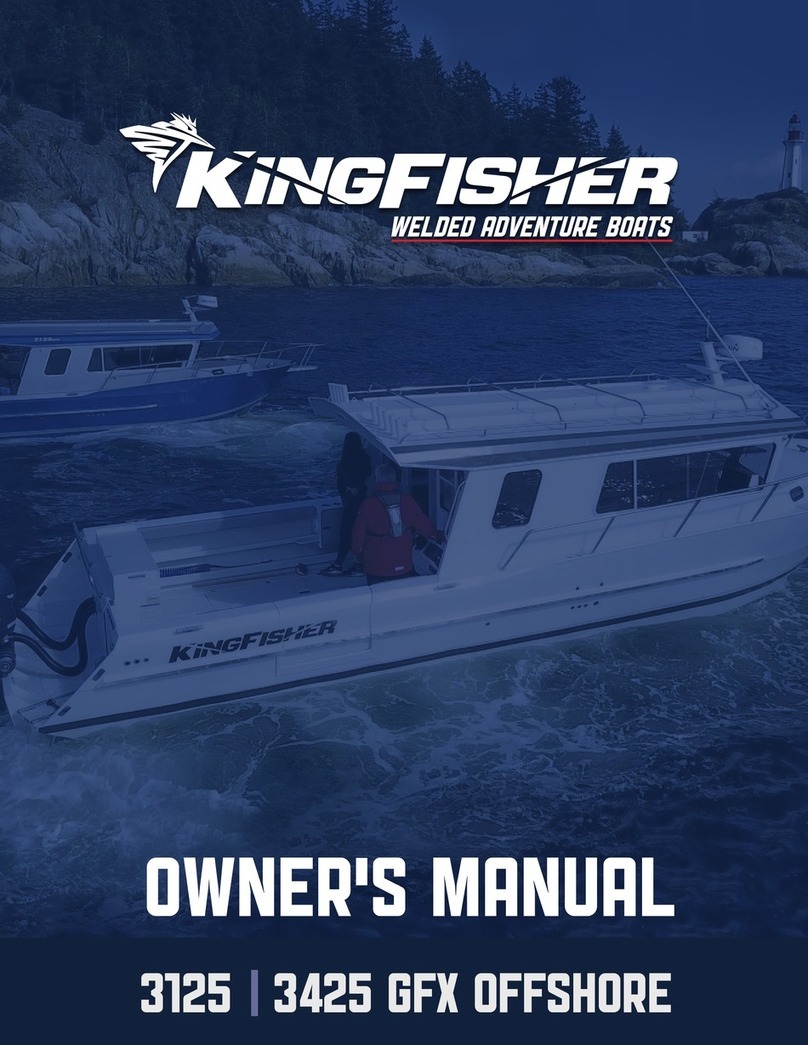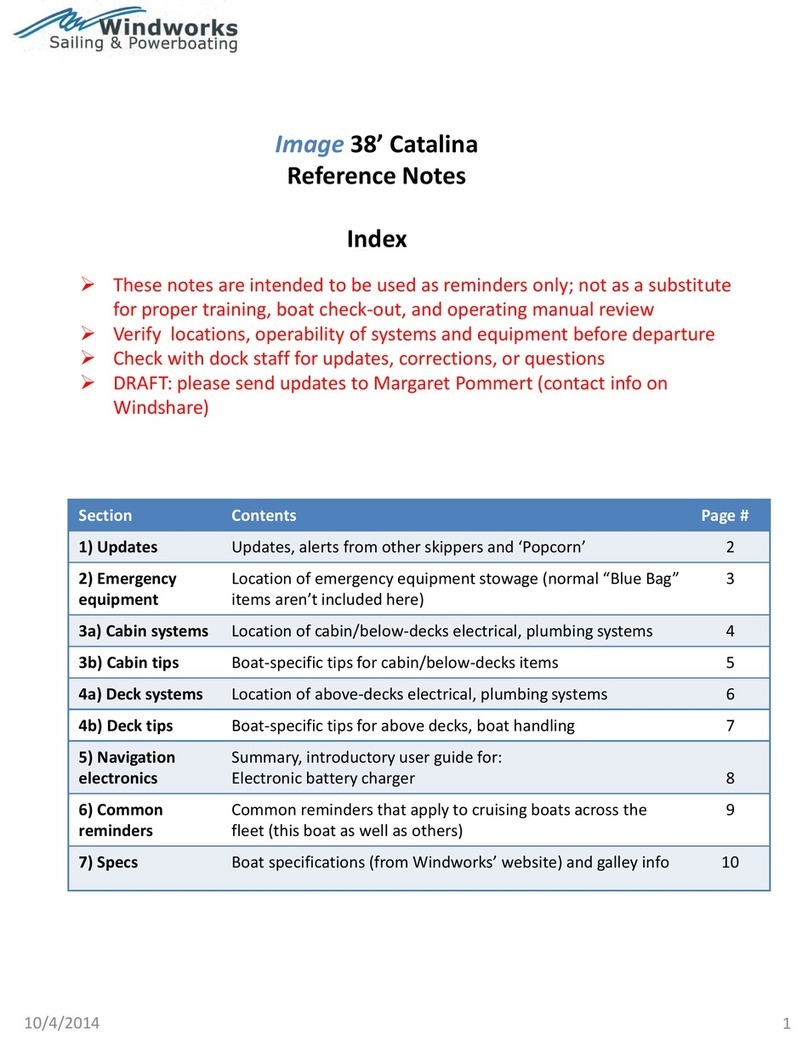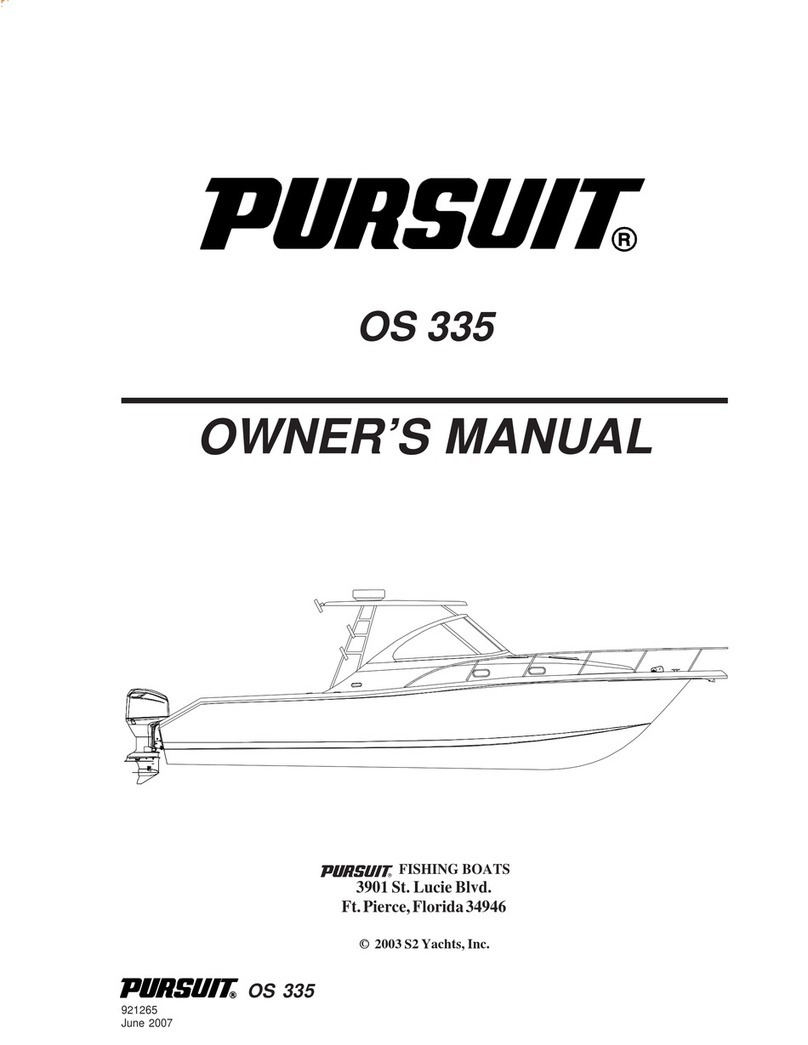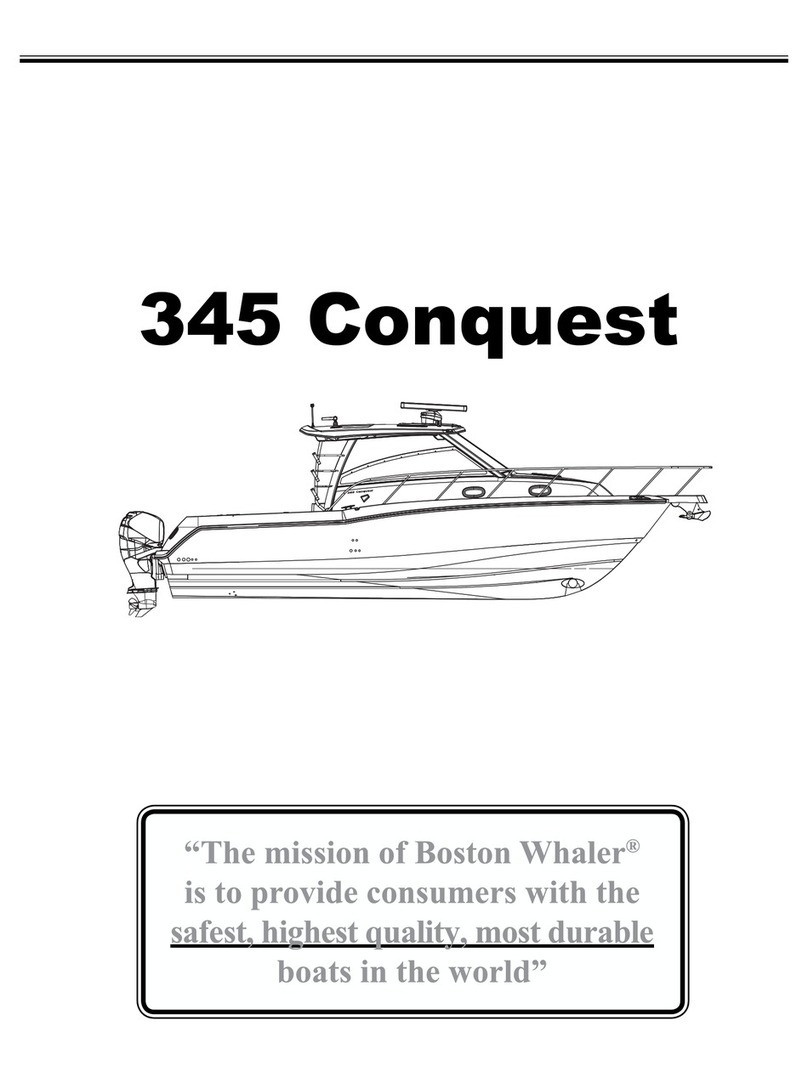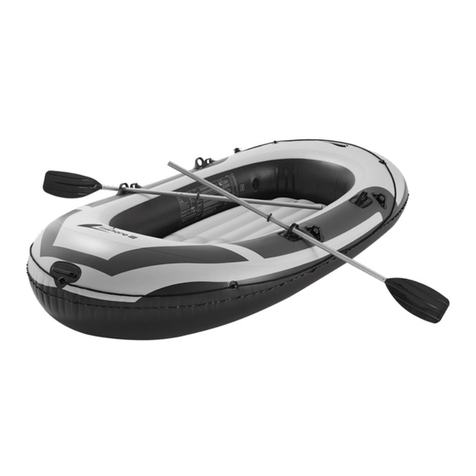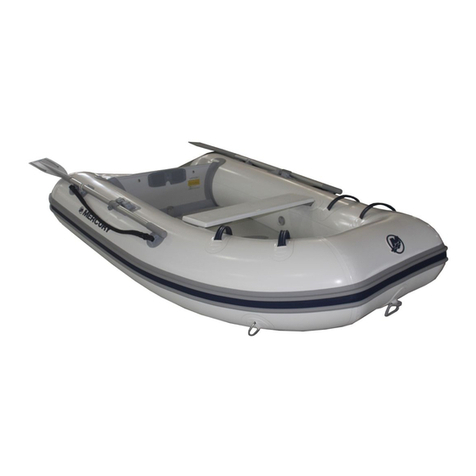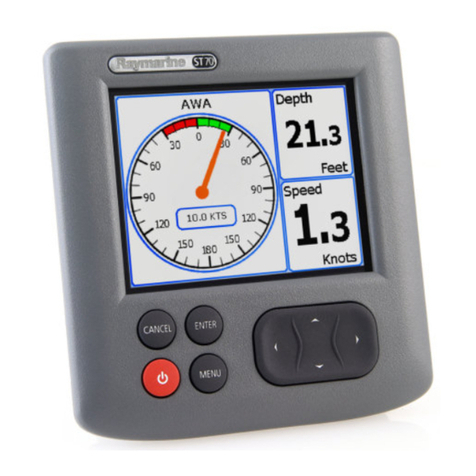Section 3 – Operator and Passenger Safety
Who may operate the boat
The safe use and operation of this boat is dependent upon the use of proper operating
techniques, as well as common sense, good judgment, and expertise. For boat
operators, Proof of Competency is compulsory throughout Canada for all persons born
after 1983. For persons born before 1983 Proof of Competency is required after August
2009. KingFisher strongly recommends reading the most recent edition of Transport
Canada’s Safe Boating Guide. Marine safety and boat handling courses are available
throughout Canada and are also strongly recommended. Every operator should know
the basics of marine navigation and boat handling. It is vital that the rules of the road and
proper respect for others using the waterways be observed at all times.
Operator’s Responsibilities
As mentioned previously, it is the operator’s responsibility to operate the boat safely in
accordance with the law, common sense and good judgment. The Operator bears
responsibility for the safety of the boat’s passengers and others that may be in the
immediate vicinity affected by the operation of the boat. In Canada, it is compulsory to
license your boat. Registering your KingFisher boat is not necessary. Insurance, while
not required everywhere, is also important to have.
The operator also has a responsibility to operate and maintain the boat and its
equipment in accordance with the manufacturer’s instructions. Failure to do so may
result in damage to the boat or its equipment or void the warranty. Consult the owner’s
manuals supplied with the boat’s installed equipment (such as the engine, etc) for
correct maintenance and operating procedures. Your KingFisher Boat requires a modest
amount of maintenance in order to provide many years of enjoyment. See Section 5 for
detailed maintenance requirements and instructions. Everyone who operates the boat
must read this manual and understand their responsibilities.
Approved personal floatation devices of the appropriate size must be worn at all times by
persons aboard the boat while it is in the water.
To avoid serious injury or death, turn off the engines while any passengers are entering
or leaving the water, or anyone is swimming in the vicinity of the boat.
Always operate your boat at a safe speed for weather conditions. Slow down during
periods of restricted visibility, choppy water and high winds. Failure to do so may result
in serious injury or death.
Do not operate the boat if any object is obstructing the line of sight forward of the
steering station. Doing so may result in damage to the boat, severe injury, or death.
Gasoline vapors are explosive. Always be careful when filling the fuel tank to avoid
spilling fuel in the boat and in the water around the boat. Extinguish all smoking material
and open flame while refueling or while within 15m of a refueling site. For safety, all
passengers should leave the boat while it is being fuelled. Avoid static electricity
discharges and do not operate a cell phone while fueling.

